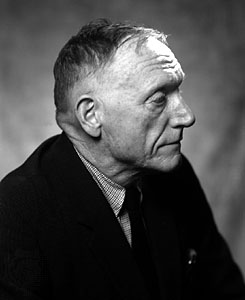|
Brackette Williams
Brackette F. Williams is an American anthropologist, and Senior Justice Advocate, Open Society Institute. She is currently an associate professor of cultural anthropology at the University of Arizona. Williams graduated from Cornell University with a BS, from the University of Arizona with a master's in Education, and from the Johns Hopkins University with a PhD in Cultural Anthropology. She has taught at Duke University, Queens College, the New School for Social Research, the University of California, Berkeley, the Johns Hopkins University, the University of Chicago, and the University of Arizona. Her work has centered on the Caribbean region, and in particular, examined how racial and ethnic categories are reproduced in Guyana nationalism. Categories and classification systems - how they are developed, what basis they have in cultural contexts, and how they are put to use, by whom and for whom - have been a general theme in her work as well. Williams's ethnographic wo ... [...More Info...] [...Related Items...] OR: [Wikipedia] [Google] [Baidu] |
Duke University
Duke University is a private research university in Durham, North Carolina. Founded by Methodists and Quakers in the present-day city of Trinity in 1838, the school moved to Durham in 1892. In 1924, tobacco and electric power industrialist James Buchanan Duke established The Duke Endowment and the institution changed its name to honor his deceased father, Washington Duke. The campus spans over on three contiguous sub-campuses in Durham, and a marine lab in Beaufort. The West Campus—designed largely by architect Julian Abele, an African American architect who graduated first in his class at the University of Pennsylvania School of Design—incorporates Gothic architecture with the Duke Chapel at the campus' center and highest point of elevation, is adjacent to the Medical Center. East Campus, away, home to all first-years, contains Georgian-style architecture. The university administers two concurrent schools in Asia, Duke-NUS Medical School in Singapore (e ... [...More Info...] [...Related Items...] OR: [Wikipedia] [Google] [Baidu] |
MacArthur Fellows Program
The MacArthur Fellows Program, also known as the MacArthur Fellowship and commonly but unofficially known as the "Genius Grant", is a prize awarded annually by the MacArthur Foundation, John D. and Catherine T. MacArthur Foundation typically to between 20 and 30 individuals, working in any field, who have shown "extraordinary originality and dedication in their creative pursuits and a marked capacity for self-direction" and are citizens or residents of the United States. According to the foundation's website, "the fellowship is not a reward for past accomplishment, but rather an investment in a person's originality, insight, and potential," but it also says such potential is "based on a track record of significant accomplishments." The current prize is $800,000 paid over five years in quarterly installments. Previously it was $625,000. This figure was increased from $500,000 in 2013 with the release of a review of the MacArthur Fellows Program. Since 1981, 1,111 people have been ... [...More Info...] [...Related Items...] OR: [Wikipedia] [Google] [Baidu] |
University Of Arizona Faculty
A university () is an institution of higher (or tertiary) education and research which awards academic degrees in several academic disciplines. ''University'' is derived from the Latin phrase ''universitas magistrorum et scholarium'', which roughly means "community of teachers and scholars". Universities typically offer both undergraduate and postgraduate programs. The first universities in Europe were established by Catholic Church monks. The University of Bologna (), Italy, which was founded in 1088, is the first university in the sense of: *being a high degree-awarding institute. *using the word ''universitas'' (which was coined at its foundation). *having independence from the ecclesiastic schools and issuing secular as well as non-secular degrees (with teaching conducted by both clergy and non-clergy): grammar, rhetoric, logic, theology, canon law, notarial law.Hunt Janin: "The university in medieval life, 1179–1499", McFarland, 2008, , p. 55f.de Ridder-Symoens, Hild ... [...More Info...] [...Related Items...] OR: [Wikipedia] [Google] [Baidu] |
University Of Chicago Faculty
A university () is an institution of higher (or tertiary) education and research which awards academic degrees in several academic disciplines. ''University'' is derived from the Latin phrase ''universitas magistrorum et scholarium'', which roughly means "community of teachers and scholars". Universities typically offer both undergraduate and postgraduate programs. The first universities in Europe were established by Catholic Church monks. The University of Bologna (), Italy, which was founded in 1088, is the first university in the sense of: *being a high degree-awarding institute. *using the word ''universitas'' (which was coined at its foundation). *having independence from the ecclesiastic schools and issuing secular as well as non-secular degrees (with teaching conducted by both clergy and non-clergy): grammar, rhetoric, logic, theology, canon law, notarial law.Hunt Janin: "The university in medieval life, 1179–1499", McFarland, 2008, , p. 55f.de Ridder-Symoens, ... [...More Info...] [...Related Items...] OR: [Wikipedia] [Google] [Baidu] |
Johns Hopkins University Faculty
*
{{disambig, geo ...
Johns may refer to: Places * Johns, Mississippi, an unincorporated community * Johns, Oklahoma, United States, a community * Johns Creek (Chattahoochee River), Georgia, United States * Johns Island (other), islands in Canada and the United States * Johns Mountain, a summit in Georgia * Johns River (other) * Johns River (Vermont), a tributary of Lake Memphremagog * Johns Township, Appanoose County, Iowa, United States Other uses * Johns (surname) * Johns Hopkins (1795–1873), American entrepreneur, investor and philanthropist * ''johns'' (film), a 1996 film starring David Arquette and Lukas Haas See also * John (other) * Justice Johns (other) Justice Johns may refer to: * Charles A. Johns (1857–1932), associate justice of the Oregon Supreme Court * Kensey Johns (judge) (1759–1848), chief justice of the Delaware Supreme Court {{disambiguation, tndis ... [...More Info...] [...Related Items...] OR: [Wikipedia] [Google] [Baidu] |
University Of California, Berkeley Faculty
A university () is an institution of higher (or tertiary) education and research which awards academic degrees in several academic disciplines. ''University'' is derived from the Latin phrase ''universitas magistrorum et scholarium'', which roughly means "community of teachers and scholars". Universities typically offer both undergraduate and postgraduate programs. The first universities in Europe were established by Catholic Church monks. The University of Bologna (), Italy, which was founded in 1088, is the first university in the sense of: *being a high degree-awarding institute. *using the word ''universitas'' (which was coined at its foundation). *having independence from the ecclesiastic schools and issuing secular as well as non-secular degrees (with teaching conducted by both clergy and non-clergy): grammar, rhetoric, logic, theology, canon law, notarial law.Hunt Janin: "The university in medieval life, 1179–1499", McFarland, 2008, , p. 55f.de Ridder-Symoens, Hilde ... [...More Info...] [...Related Items...] OR: [Wikipedia] [Google] [Baidu] |
The New School Faculty
''The'' () is a grammatical article in English, denoting persons or things that are already or about to be mentioned, under discussion, implied or otherwise presumed familiar to listeners, readers, or speakers. It is the definite article in English. ''The'' is the most frequently used word in the English language; studies and analyses of texts have found it to account for seven percent of all printed English-language words. It is derived from gendered articles in Old English which combined in Middle English and now has a single form used with nouns of any gender. The word can be used with both singular and plural nouns, and with a noun that starts with any letter. This is different from many other languages, which have different forms of the definite article for different genders or numbers. Pronunciation In most dialects, "the" is pronounced as (with the voiced dental fricative followed by a schwa) when followed by a consonant sound, and as (homophone of the archaic p ... [...More Info...] [...Related Items...] OR: [Wikipedia] [Google] [Baidu] |
Queens College, City University Of New York Faculty
Queens is a borough of New York City, coextensive with Queens County, in the U.S. state of New York. Located on Long Island, it is the largest New York City borough by area. It is bordered by the borough of Brooklyn at the western tip of Long Island to its west, and Nassau County to its east. Queens also shares water borders with the boroughs of Manhattan, the Bronx, and Staten Island (via the Rockaways). With a population of 2,405,464 as of the 2020 census, Queens is the second most populous county in the State of New York, behind Kings County (Brooklyn), and is therefore also the second most populous of the five New York City boroughs. If Queens became a city, it would rank as the fifth most-populous in the U.S. after New York City, Los Angeles, Chicago, and Houston. Approximately 47% of the residents of Queens are foreign-born. Queens is the most linguistically diverse place on Earth and is one of the most ethnically diverse counties in the United States. Queens was es ... [...More Info...] [...Related Items...] OR: [Wikipedia] [Google] [Baidu] |
Duke University Faculty
Duke is a male title either of a monarch ruling over a duchy, or of a member of royalty, or nobility. As rulers, dukes are ranked below emperors, kings, grand princes, grand dukes, and sovereign princes. As royalty or nobility, they are ranked below princess nobility and grand dukes. The title comes from French ''duc'', itself from the Latin ''dux'', 'leader', a term used in republican Rome to refer to a military commander without an official rank (particularly one of Germanic or Celtic origin), and later coming to mean the leading military commander of a province. In most countries, the word ''duchess'' is the female equivalent. Following the reforms of the emperor Diocletian (which separated the civilian and military administrations of the Roman provinces), a ''dux'' became the military commander in each province. The title ''dux'', Hellenised to ''doux'', survived in the Eastern Roman Empire where it continued in several contexts, signifying a rank equivalent to a captain ... [...More Info...] [...Related Items...] OR: [Wikipedia] [Google] [Baidu] |
Johns Hopkins University Alumni
*
{{disambig, geo ...
Johns may refer to: Places * Johns, Mississippi, an unincorporated community * Johns, Oklahoma, United States, a community * Johns Creek (Chattahoochee River), Georgia, United States * Johns Island (other), islands in Canada and the United States * Johns Mountain, a summit in Georgia * Johns River (other) * Johns River (Vermont), a tributary of Lake Memphremagog * Johns Township, Appanoose County, Iowa, United States Other uses * Johns (surname) * Johns Hopkins (1795–1873), American entrepreneur, investor and philanthropist * ''johns'' (film), a 1996 film starring David Arquette and Lukas Haas See also * John (other) * Justice Johns (other) Justice Johns may refer to: * Charles A. Johns (1857–1932), associate justice of the Oregon Supreme Court * Kensey Johns (judge) (1759–1848), chief justice of the Delaware Supreme Court {{disambiguation, tndis ... [...More Info...] [...Related Items...] OR: [Wikipedia] [Google] [Baidu] |
University Of Arizona Alumni
A university () is an institution of higher (or tertiary) education and research which awards academic degrees in several academic disciplines. ''University'' is derived from the Latin phrase ''universitas magistrorum et scholarium'', which roughly means "community of teachers and scholars". Universities typically offer both undergraduate and postgraduate programs. The first universities in Europe were established by Catholic Church monks. The University of Bologna (), Italy, which was founded in 1088, is the first university in the sense of: *being a high degree-awarding institute. *using the word ''universitas'' (which was coined at its foundation). *having independence from the ecclesiastic schools and issuing secular as well as non-secular degrees (with teaching conducted by both clergy and non-clergy): grammar, rhetoric, logic, theology, canon law, notarial law.Hunt Janin: "The university in medieval life, 1179–1499", McFarland, 2008, , p. 55f.de Ridder-Symoens, Hild ... [...More Info...] [...Related Items...] OR: [Wikipedia] [Google] [Baidu] |


.png)
